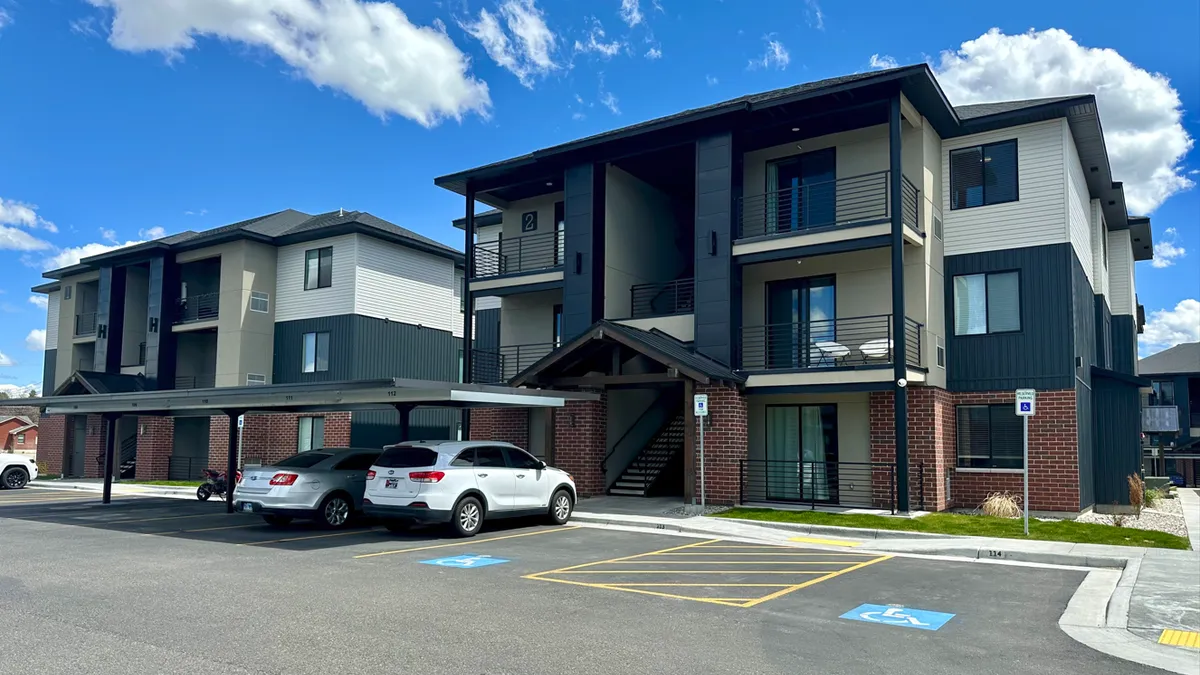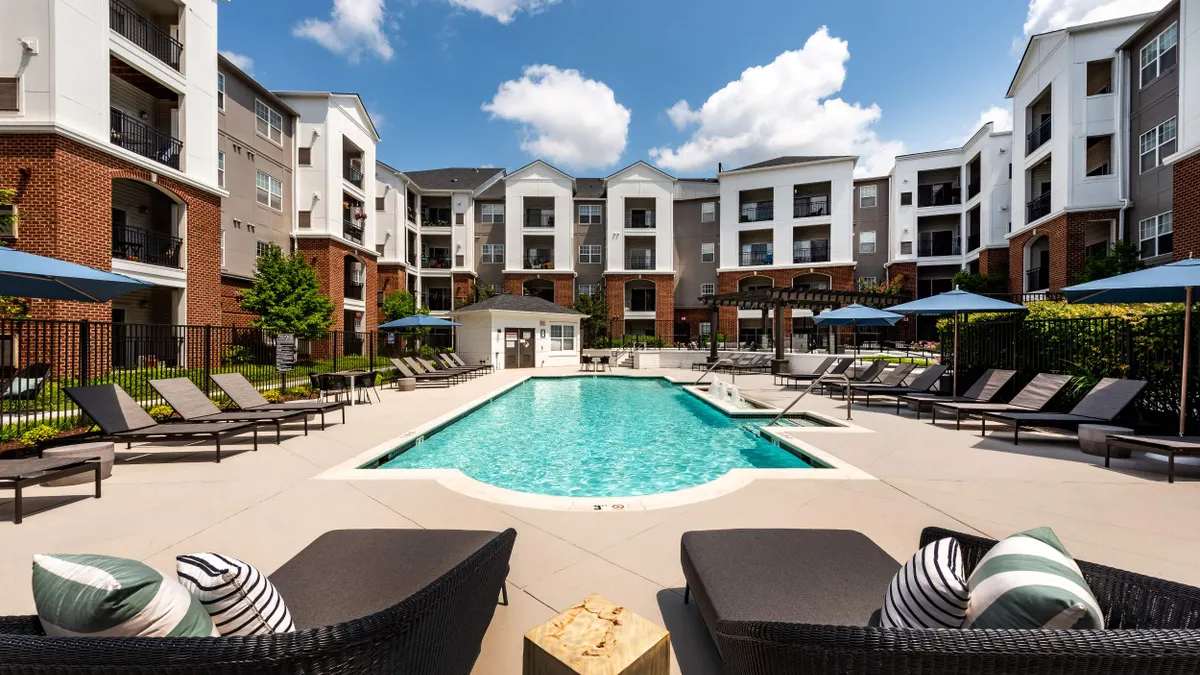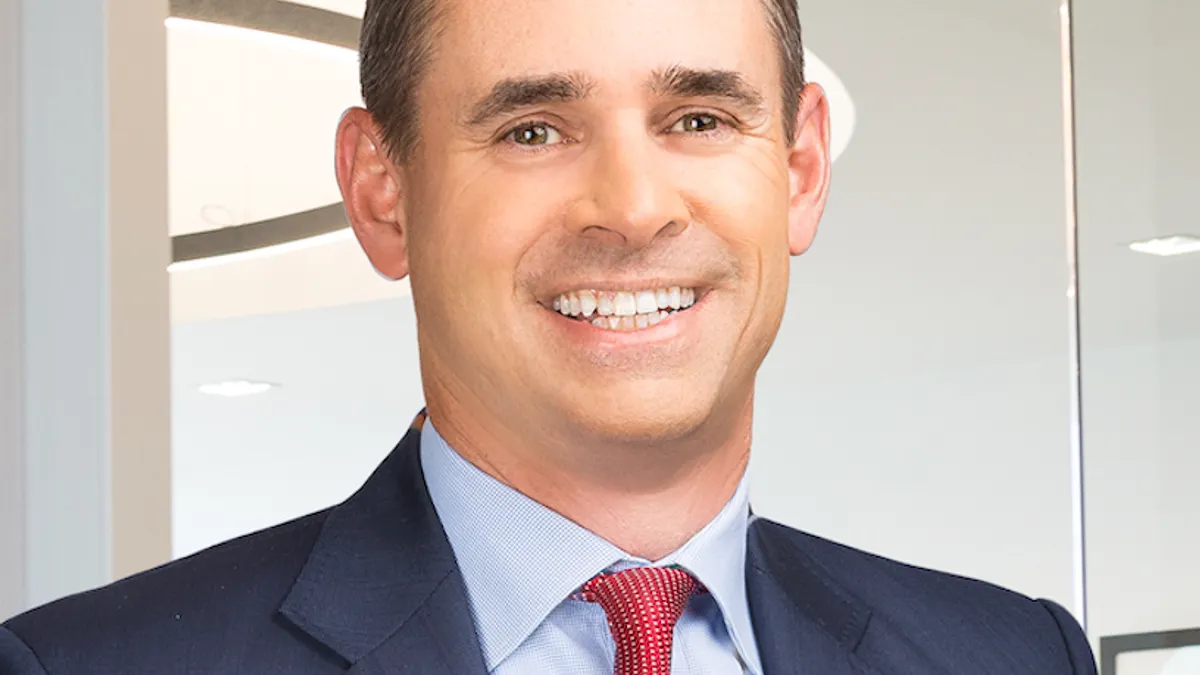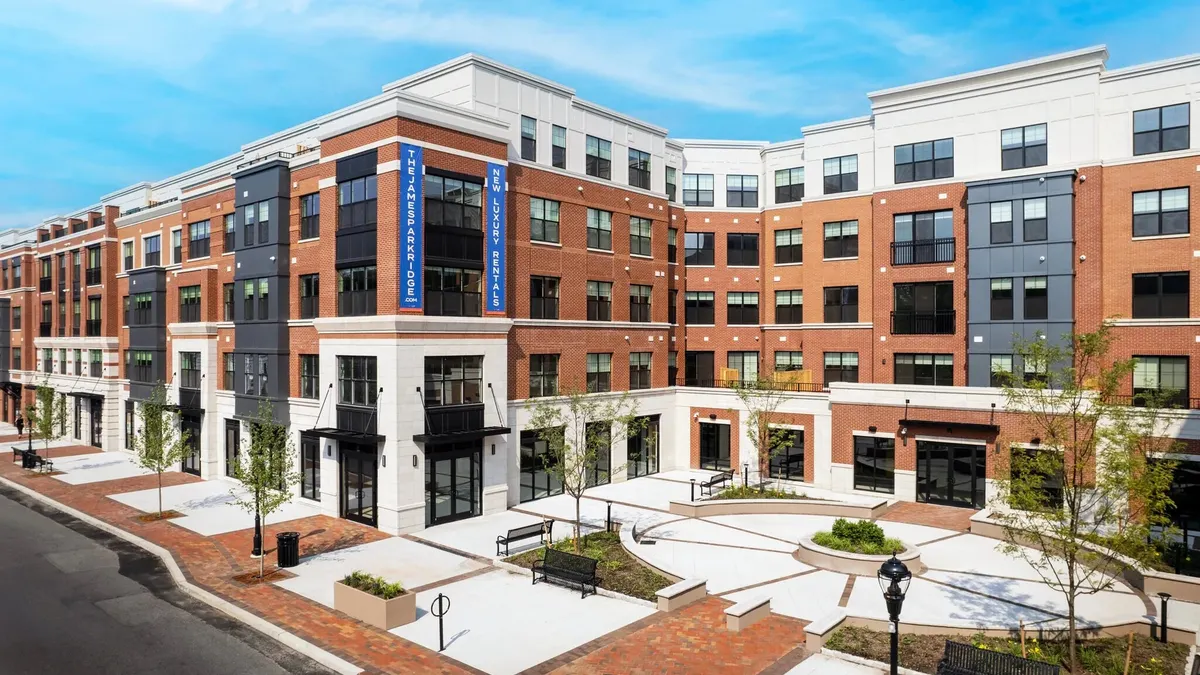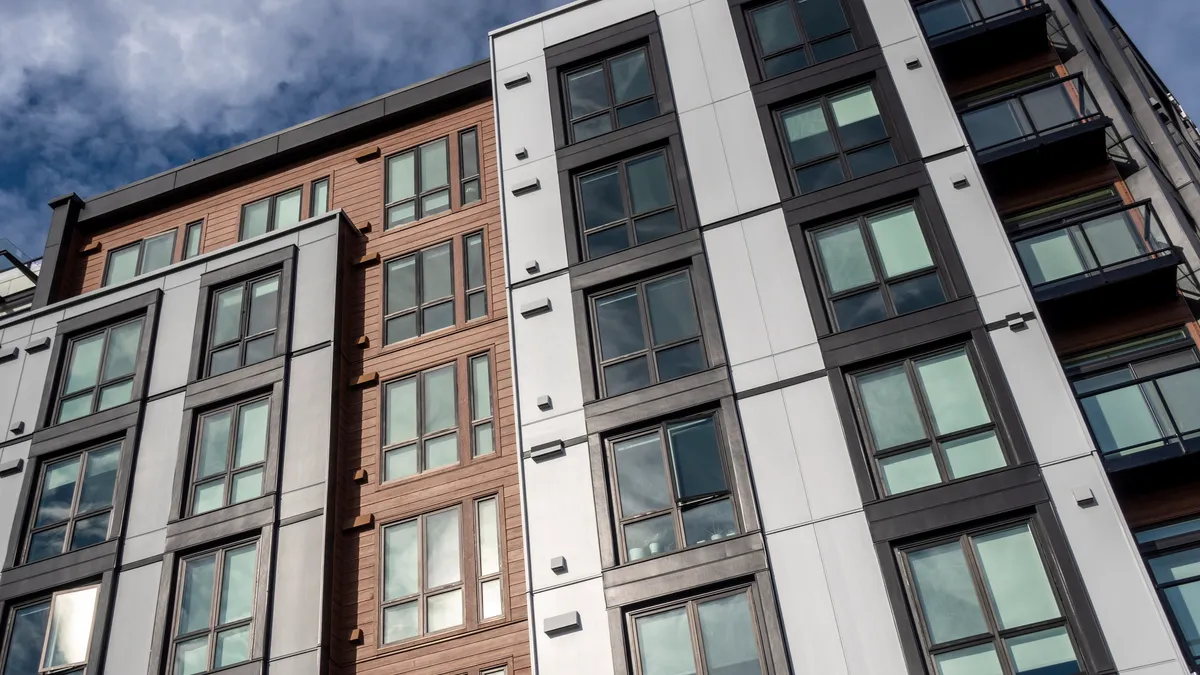For people who have made money in the tech industry, apartments might feel like a safe haven. But Zain Jaffer, partner at Midvale, Utah-based multifamily investment firm Blue Field Capital and owner at family office Zain Ventures, has a warning: Not all multifamily deals carry the same risk, and chasing a deal simply for projected returns can lead to issues.
“I know a lot of tech people who wanted to divest outside of tech with the illusion that real estate is very safe,” Jaffer told Multifamily Dive.
However, with some syndicators promising easy ways to make money and deals moving fast at unsustainable pricing, new investors from the tech sector ultimately found themselves in trouble.
“I remember every time I saw a deal, it would be oversubscribed instantly,” Jaffer said. “So, as a prospective investor, you start to be tired of losing deals. Then you think, ‘Well, I'm meeting my tech friends at a cocktail party, and they're all boasting about how this one deal they bought six months ago is trading hands again, and they’re getting great returns.’ It makes you greedy. It makes you drop your due diligence.”
Jaffer found that tech investors, who hadn’t gone through previous ups and downs in the real estate market, seem to chase the highest internal rate of return, not always looking at the long-term viability of the asset they’re buying or other important metrics such as age and location.
“A lot of this is newly minted money, and I speak on that myself,” Jaffer said. “I made my money in 2019, so I hadn't gone through all those cycles myself.”
Jaffer, who sold mobile advertising platform Vungle to Blackstone for $780 million in 2019, said he was conditioned to look for the highest IRR possible because he didn’t really know how to evaluate deals until he partnered with Blue Field Capital much later.
“When it's hard for you to differentiate between different fund managers, you're going to start focusing on just the current numbers and the historical numbers that are provided too, and that's when mistakes start to get made, especially with tech investors — that newer money,” Jaffer said.
Here, Jaffer talks with Multifamily Dive about the chase for IRR among investors, the attractions of deals with lower returns and problems in the syndicator world.
This interview has been edited for brevity and clarity.
MULTIFAMILY DIVE: How does the frothy real estate market since 2020 contribute to investors’ attitudes?
ZAIN JAFFER: When LPs were investing in real estate deals around 2019 to 2021, they were conditioned to ‘What is the IRR on this investment?’ Times were so good a couple of years ago that nearly every deal would generate great returns or be oversubscribed quickly. So due diligence was often rushed or overlooked.
There was also a rush of syndicators into the market which meant a lot of poor quality deals were getting funded when they shouldn't have.
As times have changed, the industry has forgotten to reset expectations with investors, especially as interest rates have increased. So, investors are now even more focused on achieving a higher IRR to compensate for higher borrowing costs. It's important to understand that IRR is a function of the type of asset you’re purchasing, including the location and the age of the property.
How do you change this mindset among LPs?
We get this question a lot at Blue Field Capital. When we market a deal to LPs, the question we often get is, ‘What is the IRR?’ We have to explain that this might be a lower-IRR deal than what they're used to seeing, but it's in a strong market. For example, it's a class A deal, and it’s newly built with good comps nearby. This should obviously be a lower IRR deal as it comes with a lot less risk, but it's a solid asset.
Did fund managers also play a role in this overexuberance?
There was a period where we bid on 100 deals straight in a row only to get rejected on every occasion. We were often surprised at what other groups were paying.

I think many fund managers lost discipline along the way because if they were not actively buying real estate, they were not making fees. I saw other groups bid on deals that were terrible. They would just make the spreadsheet work. All they had to do was modify a few variables in the spreadsheet: “Let's plug in some unrealistic rent growth. Let's assume costs are going to be lower and cap rates compress.”
I mean, that's a recipe for disaster. You can come out with a mid-20s IRR or 30s IRR on paper, but this is the problem if they are incentivized to deploy dollars often.
Did seeking the highest IRR cause problems for you?
Through my family office and before joining Blue Field Capital, yes, absolutely. I started chasing higher IRR deals, and eventually, when the market turned on me, I was left holding many properties that had projected high IRR, but they were basically class C assets in tertiary markets that turned out to be poor performers. I divested most of my real estate, some at a steep loss, but I wanted to get rid of that part of my portfolio.
If I had initially thought about carefully constructing a diversified portfolio with different risk profiles, I would have done a lot better on my direct investments at Zain Ventures.
Have the syndicator issues dampened investor enthusiasm for apartments?
Some LPs get burned, and then they just start to assume ‘real estate's not for me — real estate doesn't have a place in my portfolio.’ Unfortunately, if you invest in 10 real estate fund managers, one or two of them may take the approach that the syndicators did, and that hurts your entire net returns across your real estate portfolio.
Some of these are underwater, and the returns from the others don't do enough to buffer that. So there's been a lot of bad actors. I experienced a bad actor myself.
There was a syndicator who I partnered with before I joined Blue Field Capital, and this syndicator overpaid a lot for assets. We found out they also embezzled money so my family office took over the properties and booted them.
These particular assets have been difficult for us to sell because of their condition and the current market. We're incurring huge losses from these assets which was the result of poor due diligence and too much focus on high IRRs.
A lot of bad people offer quick, easy ways to make money, and they promise you the world. Look beyond IRRs.
Click here to sign up to receive multifamily and apartment news like this article in your inbox every weekday.



